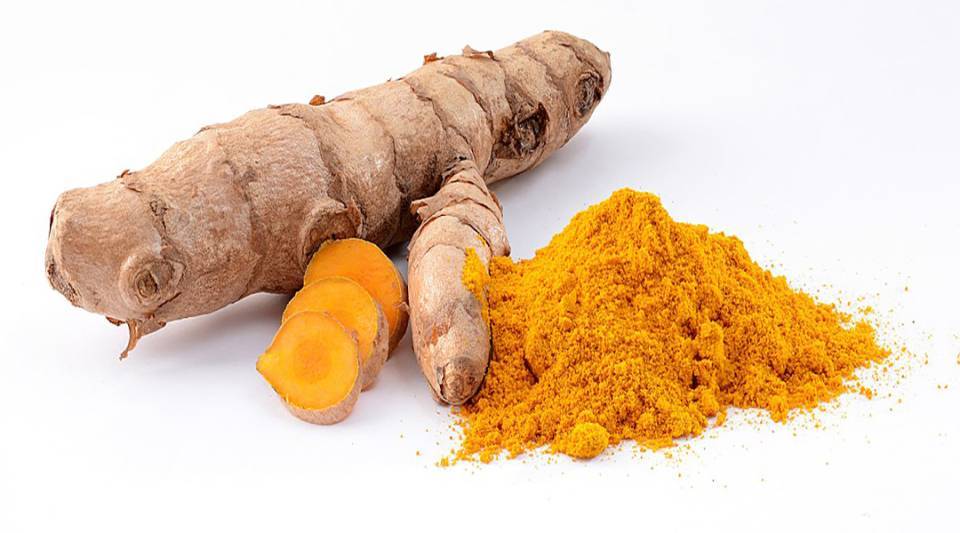Solved! Best Supplements For Neuropathy
- Dr. Evan Norum
- January 17, 2024
- 2:49 pm

Table of Contents
Neuropathy is often described as a battle against invisible enemies: tingling, pain, and numbness. For individuals grappling with this condition, the search for effective relief can be a challenging journey. A seasoned chiropractor certified in neuropathy treatment shares insights from over a decade of experience in the field. Through years of patient care and continuous learning, this professional has witnessed the positive impact that certain dietary supplements can have on nerve health.
The chiropractor’s expertise, grounded in medical studies and practical patient interactions, has reinforced the understanding of how targeted supplementation can be necessary for nerve repair and symptom alleviation. Vitamin B-12, for instance, stands out as a key component in nerve rejuvenation, a supplement many patients consider indispensable in managing their symptoms. This article explores not only the well-established B vitamins but also a variety of other supplements that strengthen nerves against damage.
With a focus on evidence-based recommendations, the aim is to equip readers with the knowledge necessary for making informed decisions on their journey toward wellness. As the article unfolds, it offers insights that could be instrumental in improving nerve health and preventing neuropathy from being a disability.
“Over a decade of treating neuropathy, I’ve seen how the right supplements can be game-changers. Vitamin B-12, for instance, is more than a supplement; it’s a key ally in the fight against nerve damage and pain.” Dr. Evan Norum– Board Certified Neuropathy Specialist
Key Takeaways
- Vitamin B12 is critical for nerve health and reducing neuropathic pain, especially if you’re dealing with diabetic or peripheral neuropathy. Proper levels help repair the myelin sheath protecting nerves.
- Taking too much Vitamin B6 can cause sensory problems like tingling or numbness, so it’s essential to stick to recommended doses and monitor all vitamin sources.
- Alpha Lipoic Acid (ALA) has shown significant promise in easing diabetic neuropathy symptoms by combating oxidative stress and improving nerve function.
- Acetyl-L-Carnitine may improve nerve function and reduce pain over time for those with neuropathy caused by conditions such as diabetes. It also holds potential benefits for memory and cognitive function.
- Supplements like N-acetyl cysteine (NAC), Curcumin, Fish Oil, and Magnesium help manage neuropathic symptoms through various mechanisms, including antioxidant effects, anti-inflammatory actions, supporting nerve regeneration, and relieving pain.

B Vitamins for Neuropathy
B vitamins are pivotal in maintaining nerve health, with specific types proving essential in managing and potentially alleviating neuropathic symptoms. Their efficacy in addressing the complexities of neuropathy underscores the importance of considering these critical micronutrients as part of a comprehensive treatment strategy.
Vitamin B12
Vitamin B12 plays a key role in the health of your nerves. If you suffer from neuropathy, including diabetic or peripheral neuropathy, maintaining adequate levels of this vitamin is vital.
Research indicates that Vitamin B12 supplements may help reduce pain and other disturbing symptoms associated with nerve damage. It not only aids in alleviating the discomfort but also potentially assists in repairing the myelin sheath, which protects nerves.
A deficiency in Vitamin B12 can lead to increased levels of neuropathic pain and further nerve deterioration. Ensuring proper diet or supplement intake could benefit those experiencing such deficiencies.
This essential nutrient supports nerve regeneration and has been linked to reduced pain scores among neuropathy patients. Consider discussing with your healthcare provider about testing your Vitamin B12 levels if you’re dealing with unexplained numbness, tingling sensations, weakness, or chronic pain due to nerve-related issues.
“It’s imperative to understand the dual nature of supplements. While Vitamin B12 is indispensable for nerve repair, excessive Vitamin B6 can ironically cause neuropathy symptoms. This highlights the need for a balanced and informed approach to supplementation.” Dr. Zach Bruley – Board Certified in Neuropathy Treatment
Vitamin B6
Vitamin B6 is vital in maintaining healthy nerve function, so many consider it beneficial for those dealing with neuropathy symptoms. It helps to preserve the protective coating around nerve endings, which can be essential for preventing additional damage and managing discomfort.
While naturally occurring forms of vitamin B6 found in foods such as bananas, nuts, and fish are not linked to neuropathic conditions, getting enough of this nutrient from your diet could support nerve health.
It’s important to note that taking high doses of vitamin B6 supplements may lead to toxic effects. Some individuals have experienced sensory changes like tingling or numbness due to excessive supplementation with this vitamin.
For this reason, healthcare providers often stress the importance of sticking to recommended doses and considering all sources of vitamins when adding supplements into one’s regimen—especially since overconsumption can result in peripheral neuropathy that manifests through burning sensations or loss of feeling in the hands.
Vitamin B1
While vitamin B6 plays its part in neuropathy care, we can’t overlook the critical role of Vitamin B1 or thiamine. This nutrient is not just another vitamin but a potent antioxidant specifically targeting nerve health.
Thiamine jumps into action by transforming food into energy, fueling nerve cells to function optimally and supporting their regeneration after injury. This makes it an indispensable ally for those managing neuropathic conditions.
Patients dealing with neuropathy must pay close attention to their Vitamin B1 intake. Consistent levels of thiamine are essential because they safeguard nerves from damage linked to oxidative stress—a known contributor to worsening symptoms in neuropathic patients.
Moreover, this powerful vitamin has shown promise in aiding the repair process, essential when nerves have been compromised by disease or injury.
“B vitamins are the unsung heroes in neuropathy treatment. Each plays a unique role – B12 in nerve regeneration, B6 in nerve protection, and B1 as an antioxidant. Their combined effect can significantly alleviate neuropathic symptoms.” Dr. Tyler Moore – Board Certified in Neuropathy

Other Beneficial Supplements for Neuropathy
Beyond the essential B Vitamins, a spectrum of additional supplements has shown promise in supporting nerve health and mitigating neuropathy symptoms. These compounds work through various mechanisms, from enhancing mitochondrial function to modulating inflammatory responses, offering potential adjunctive benefits to conventional treatments.
Alpha Lipoic Acid
Alpha Lipoic Acid, often called ALA, is a potent antioxidant your body naturally produces. It plays a critical role in energy metabolism and helps break down carbohydrates to fuel your cells.
For those dealing with diabetic neuropathy, ALA’s ability to stave off oxidative stress can be particularly beneficial—making it one of the more promising neuropathy supplements.
Research indicates that Alpha Lipoic Acid may significantly ease the pain associated with peripheral neuropathic damage, especially for those with diabetes. Patients have improved after incorporating this supplement into their regimen, noting less discomfort and better overall nerve function.
While it is not a cure-all, adding ALA alongside a healthy diet and proper medical treatments for neuropathy could offer some relief from stubborn symptoms of nerve damage.
“Exploring beyond B vitamins, supplements like Alpha Lipoic Acid and Acetyl-L-Carnitine offer promising results in neuropathy care. They work to ease symptoms and enhance nerve function, marking a significant step in holistic treatment.” Dr. Evan Norum – Board Certified in Treating Neuropathy
Acetyl-L-Carnitine
Acetyl-L-Carnitine stands out as a promising supplement for those dealing with neuropathy. Its remarkable neuroprotective effect can be a game-changer, especially for patients struggling with the challenges of peripheral neuropathies, no matter their cause.
Researchers have discovered that this compound doesn’t just safeguard nerves; it may also boost nerve function in people whose neuropathy stems from diabetes—a common and often debilitating condition.
Taking 1,500 mg of Acetyl-L-Carnitine twice daily has led to noticeable improvements over six months for individuals grappling with nerve pain. This supplement isn’t limited to physical health benefits either; it’s been explored for its potential in tackling Alzheimer’s disease symptoms, enhancing memory and thinking skills, lifting the fog of depression, and providing much-needed relief from nerve pain.
For those living with the day-to-day reality of neuropathy, acetyl-L-carnitine could offer a vital piece of their wellness puzzle.
N-Acetyl Cysteine (NAC)
N-acetyl cysteine, or NAC, stands out as a supplement for those struggling with neuropathy, mainly due to diabetes. Research highlights its ability to slow down the progression of nerve damage in diabetic patients by reducing oxidative stress and improving liver function.
Taking NAC may help protect nerves and enhance overall nerve health.
Many individuals find relief with a daily dose ranging from 1200 to 2400 mg of NAC. This specific dosage has shown promising results in mitigating symptoms associated with diabetic neuropathy.
However, before adding any new supplement to your routine, it’s essential to consult with healthcare professionals, mainly because of potential interactions with other medications you may be taking for neuropathy or related conditions.
“Beyond the B vitamins, supplements like N-Acetyl Cysteine, Curcumin, and Fish Oil can play diverse roles in neuropathy management. Their antioxidant and anti-inflammatory properties and nerve regeneration support can be instrumental in a comprehensive treatment strategy. However, it’s essential to integrate these supplements with professional guidance to ensure optimal benefits.” Dr. Taylor Moore – Certified Neuropathy Treatment Specialist

Curcumin
Curcumin stands out in the fight against neuropathy due to its potent anti-inflammatory properties. Research has demonstrated that this compound, derived from turmeric, can effectively prevent chronic pain often linked with nerve damage.
Its biochemical effects include the inhibition of p300/CBP and acetyl-histone H3/acetyl-, which play a role in reducing neuropathic pain sensations.
Patients dealing with diabetic neuropathy may find particular relief with curcumin supplementation. Studies indicate that nano-curcumin forms could notably decrease the severity of symptoms associated with diabetic-related nerve issues, showing promise for those seeking alternatives or additions to conventional treatments.
This supplement can serve as a powerful ally for individuals aiming to manage inflammation and alleviate discomfort caused by various forms of neuropathy.
Fish Oil
Fish oil supplements, rich in omega-3 fatty acids, offer hope for those suffering from neuropathy. Research suggests these supplements decrease pain and play a role in nerve regeneration.
Pre-clinical studies have demonstrated significant positive effects on nerves damaged by diabetes. This points to fish oil as a promising avenue for alleviating symptoms associated with diabetic peripheral neuropathy.
Taking fish oil may also slow the progression of this condition. Omega-3s support nerve health and could be vital in reversing the damage caused by high blood sugar levels.
For individuals looking for non-pharmaceutical options to manage their neuropathic pain, fish oil emerges as an effective natural supplement that warrants consideration alongside traditional treatments.
“When considering supplements for neuropathy, the key is personalization and professional guidance. What works for one individual may not work for another. It’s about finding the right balance to improve quality of life without adverse effects.” Dr. Zach Bruley – Board Certified in Neuropathy Treatment
Magnesium
Magnesium is critical in supporting nerve health and may offer relief to those with neuropathy. Studies suggest that it contributes to the easing of neuropathic pain, which includes conditions like dysmenorrhea and tension headaches.
It’s not just about alleviating pain; magnesium is also known for its potential to enhance axonal growth and stimulate the proliferation of neural stem cells. These actions are critical as they could lead to the regeneration of nerves, offering hope for patients looking for ways to heal their damaged nervous systems.
For individuals experiencing peripheral neuropathic pain or other related symptoms such as neuropathic itch, adding magnesium into their routine might make a significant difference.
Applying magnesium transdermally has been found effective in managing these discomforts, providing an alternative route for those who could face challenges with oral supplementation due to various reasons like stomach acid-reducing medications or malabsorption issues following gastric bypass surgery.
Maintaining healthy peripheral nerve function is vital, so incorporating the right amount of magnesium through diet or supplements can be beneficial.
Considerations for Supplementing for Neuropathy
If you’re grappling with neuropathy, embracing the right supplements could offer some benefits. Discuss potential options with a healthcare provider to avoid adverse effects and interactions.
Incorporating vitamins into your regimen demands understanding their impact on nerve health. A balanced approach to supplementation, coupled with medical guidance, might improve your quality of life and increase life expectancy.
Remember, each individual’s needs are unique; tailor your choices to fit your health profile and neuropathic condition for optimal results.

FAQs
1. What vitamins are good for neuropathy?
Neuropathy vitamins like B complex, alpha-lipoic acid, and vitamin D can help relieve pain and improve nerve health.
2. Can certain supplements lower blood sugar in people with neuropathy?
Yes, supplements such as alpha-lipoic acid have been shown to help lower blood sugar levels, which benefits those with diabetes complications.
3. Are there any natural treatments for chemotherapy-induced neuropathy?
Alpha-lipoic acid and acetylcysteine may offer some relief from chemotherapy-induced neuropathy by potentially helping to heal damaged nerves.
4. Does a deficiency in Vitamin B12 affect neuropathy?
A Vitamin B-12 deficiency can lead to pernicious anemia and peripheral sensory neuropathy, causing numbness and weakness in the limbs.
5. Can taking supplements interfere with medications like Warfarin (Coumadin)?
Some supplements might interact with blood-thinning medications like Warfarin or Jantoven; always consult a healthcare provider before starting any new supplement regimen.
6. Is it possible that certain foods or supplements could worsen symptoms of autoimmune-related neuropathies?
Foods fortified with vitamins or specific supplements may influence one-carbon metabolism pathways and interact with conditions like lupus or rheumatoid arthritis; care should be taken under medical guidance. There are many foods you should avoid with neuropathy.

About the Author
Dr. Evan Norum, co-owner of Advantage Chiropractic in New Berlin, WI, holds a Doctorate of Chiropractic from Northwestern Health Sciences University. Inspired by personal experiences with chiropractic care, he specializes in family-based treatments and is board-certified in chiropractic care, neuropathy, and the Torque Release Technique®. With internships at leading chiropractic centers and co-founding Advantage Chiropractic in 2017, Dr. Evan Norum is dedicated to promoting health from within.
